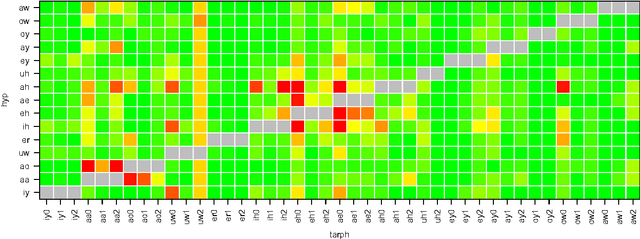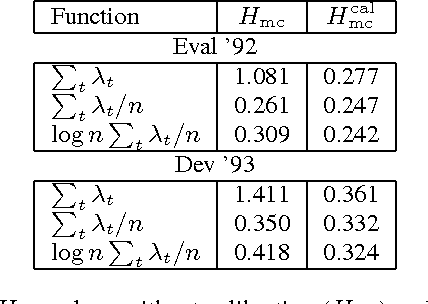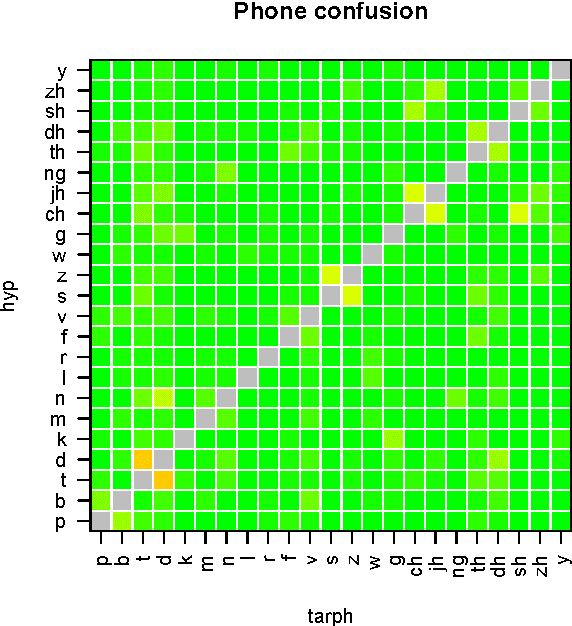Joost van Doremalen
Calibration of Phone Likelihoods in Automatic Speech Recognition
Jun 14, 2016



Abstract:In this paper we study the probabilistic properties of the posteriors in a speech recognition system that uses a deep neural network (DNN) for acoustic modeling. We do this by reducing Kaldi's DNN shared pdf-id posteriors to phone likelihoods, and using test set forced alignments to evaluate these using a calibration sensitive metric. Individual frame posteriors are in principle well-calibrated, because the DNN is trained using cross entropy as the objective function, which is a proper scoring rule. When entire phones are assessed, we observe that it is best to average the log likelihoods over the duration of the phone. Further scaling of the average log likelihoods by the logarithm of the duration slightly improves the calibration, and this improvement is retained when tested on independent test data.
 Add to Chrome
Add to Chrome Add to Firefox
Add to Firefox Add to Edge
Add to Edge